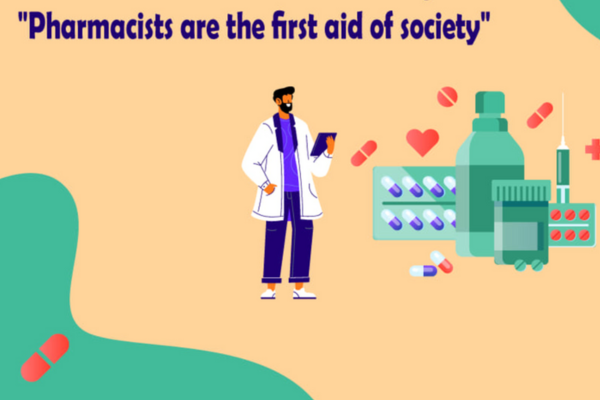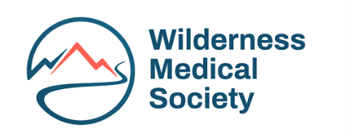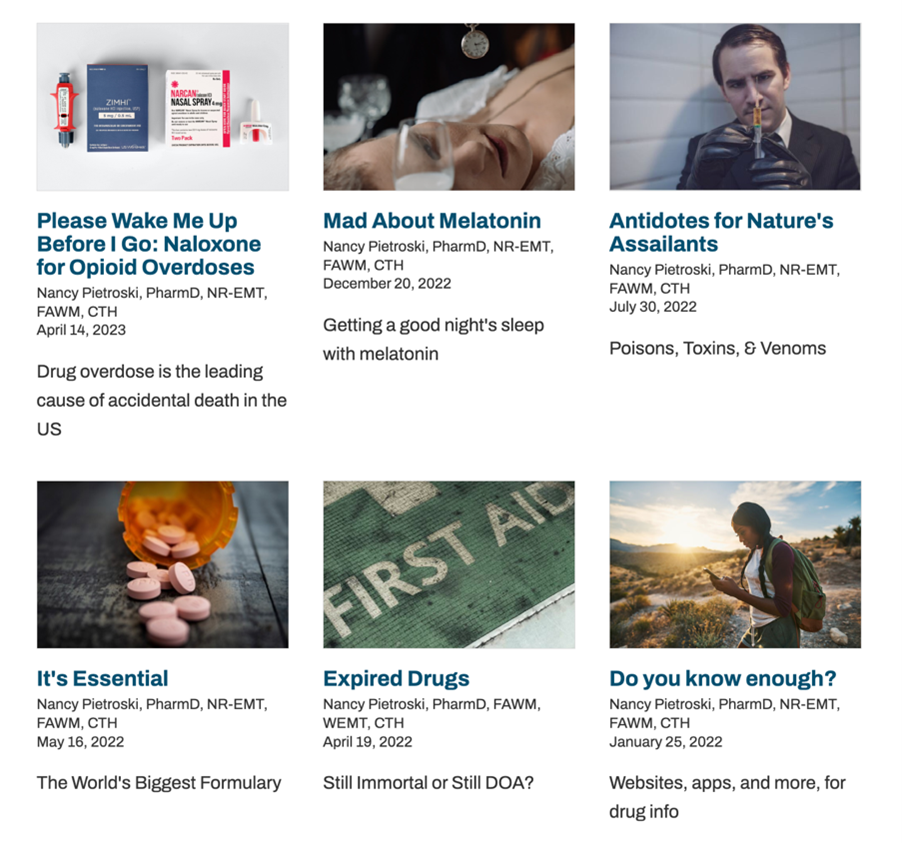
From nagadhat.com.
What health care professions “practice” wilderness medicine?
The former slogan for the Wilderness Medical Society used to be “Combining Your Profession With Your Passion”. You’re a pharmacist and you love everything about the outdoors, but you’re slogging away behind the counter or mixing up meds under the hood, i.e, inside. Can pharmacists even practice wilderness medicine, defined as “medical care delivered in those areas where fixed or transient geographic challenges reduce availability of, or alter requirements for, medical or patient movement resources” (the definition in Auerbach’s Wilderness Medicine 7th ed. text)?

The website of the Wilderness Medical Society, celebrating its 40th anniversary this year, lists the following wilderness medicine topics under their Philosophy: “expedition and disaster medicine, dive medicine, search and rescue, altitude illness, cold- and heat-related illness, wilderness trauma, survival, and wild animal attacks. The WMS explores health risks and safety issues in extreme environments such as mountains, jungles, deserts, caves, the ocean, and space.” WMS lists over 20 institutions that offer graduate medical fellowships in wilderness medicine, and numerous articles have been published about wilderness medicine curriculums for medical students and residents, as well as for NPs and PAs. EMS professions like EMTs and paramedics can upgrade to their skills to a wilderness medical provider. (Note: the previously mentioned programs are just examples of what is being offered in the US and in other countries and does not imply an endorsement). If one searches “wilderness medicine pharmacist” or “wilderness medicine pharmacy” on the internet, sites about emergency medicine pharmacists come up. But when the sites are explored, nothing about “wilderness” appears. The closest thing I could find is pharmacist jobs that appear for Médecins Sans Frontières (Doctors Without Borders).
So what does an adventure-seeking-relief-volunteer-motivated-environmentally-concerned pharmacist have to do to become trained in the “coolest specialty in medicine”? (a quote from a Dr. Ali Aratsu at the latest WMS summer conference in Spokane in July). When I first started my search over 15 years ago, emergency medicine was not a specialty for pharmacists. I responded to codes in the ER, but nothing like EM-trained pharmacists are doing now. Travel medicine is a different story, which is a needle-and-deltoid muscle fit for pharmacists—counseling on and in many states providing prescriptions for medications independently or collaboratively (in some other countries, like Canada, prescriptive authority is more broad), OTC drugs, discussing travel topics such as safe food and beverage practices and insect bite precautions, and of course, administering travel and routine vaccines. And you often travel in or to get to the wilderness, so travel medicine is a component of wilderness medicine, right? Although there are other programs out there, the International Society of Travel Medicine offers a terrific Certificate in Travel HealthTM , including a review course for those interested in sharpening their travel medicine skills and for working in or even opening a travel medicine clinic. Over 12% of ISTM’s membership is pharmacists; in contrast, I could find only 4 pharmacist members in WMS (1 of them is me).
Information about pharmacists practicing wilderness medicine is like a serious drug shortage. Even though wilderness medicine lends itself of course to physicians (especially emergency medicine trained), but also nurses, PAs, and EMS personnel, we just don’t have quite the right training. Sure, we do drugs (and drug information), but how much are drugs used in wilderness medicine? Hmmm…you’ll see in a bit.
My journey of a thousand miles began with…
A single email over 15 years ago. I had already been a retail and hospital pharmacist, worked as a clinical coordinator with an infectious diseases group, then became a medical writer before moving to pharma, which I will admit was at times rewarding, but most times, soul-sucking. In 2000, bored, I joined a local ski patrol and my life changed. I wasn’t a terrific skier (and the “mountain” had a vertical of 420 feet—the definition of not high!) but I loved Outdoor Emergency Care and quickly became an OEC instructor. These were the skills I craved but I didn’t get in pharmacy school. In 2007, still bored and in worsening throes of a midlife work crisis, I came across WMS’s website and immediately joined. I started to receive Wilderness Medicine (now Wilderness Medicine Magazine) and wrote to Dr. Christopher Van Tilburg, Editor-in-Chief of the magazine at the time, and sent him samples of articles I had written for various newspapers and newsletters on outdoor topics. He immediately welcomed me to the editorial team and I began to write regularly for the magazine. My wilderness medicine training blossomed—I started attending WMS and local wilderness medicine conferences, took several wilderness medicine field courses, an Advanced Wilderness Life Support (AWLS) course, a bridge course from OEC to Wilderness EMT, a bridge course from OEC (similar to an EMR) to EMT, and received my Fellowship in the Academy of Wilderness Medicine (FAWM) and CTH. I continued to write for the magazine and moved from Associate Editor to Senior Editor, and most recently to Executive Editor, following in the gigantic footsteps of Dr. Seth Hawkins, the previous Exec Ed.
In 2015, I started to write a core column for the magazine called BaseCamp Rx: “Explore topics about pharmacology, drugs, vaccines, and other therapeutics pertinent to wilderness and travel medicine, written by a pharmacist. Equip yourself with the knowledge about what to get before you go on an adventure or work trip, and what to pack in your medical kit in case of an accident, medical issue, or toxic exposure.” I authored the chapter “Wilderness Pharmacology” in the esteemed Dr. Hawkins’s text Wilderness EMS. This is how you can use drugs in wilderness medicine! I now work part-time as a medical editor for Shoreland Travax, a clinical decision support tool for travel medicine practitioners. I’m still a volunteer ski patroller and now volunteer for the US Forest Service. Searching on “pharmacist wilderness medicine” (instead of “wilderness medicine pharmacist”) on the internet yields my LinkedIn profile as the third hit. I guess I am finally a wilderness medicine pharmacist!

How do you become a wilderness medicine pharmacist?
- Learn about and become specialized as an emergency medicine pharmacist
- Take a wilderness medicine course(s)—see this excellent information from the Wilderness Medicine Education Collaborative
- Consider becoming an EMT or paramedic (part-time opportunities are often available)
- Attend WMS annual summer or winter conferences, always in gorgeous outdoor places (join first or spread the good word if you’re already a member!) or local wilderness medicine conferences (search on the internet)
- If you’re interested in the environment and climate, check out the University of Colorado’s Diploma in Climate Medicine, which is open to health care providers, including pharmacists
- Note that I have not been able to find any CME courses that offer pharmacy CE credits; an example is these courses offered by WMS. Apparently ACPE is very persnickety about offering CE (of course it must be drug-related) and makes it difficult for CE program coordinators to provide it
- Get involved in research if you’re affiliated with a university with a wilderness medicine curriculum—are you interested in poisonous plants? Snakebites? Endurance racing? Drug stability in different environments? Medicinal plants?
- Check out WMS’s educational offerings or sign up for a Fireside Chat
- Buy some wilderness medicine textbooks or field guides
- Join ski patrol
And for all of you astronuts out there – space is the new wilderness.
Don’t get sucked into a black hole: do combine your profession with your passion—go where few people have gone before—and become a wilderness medicine pharmacist.
Do you have any other ideas about becoming a wilderness medicine pharmacist?
Please email me at [email protected].